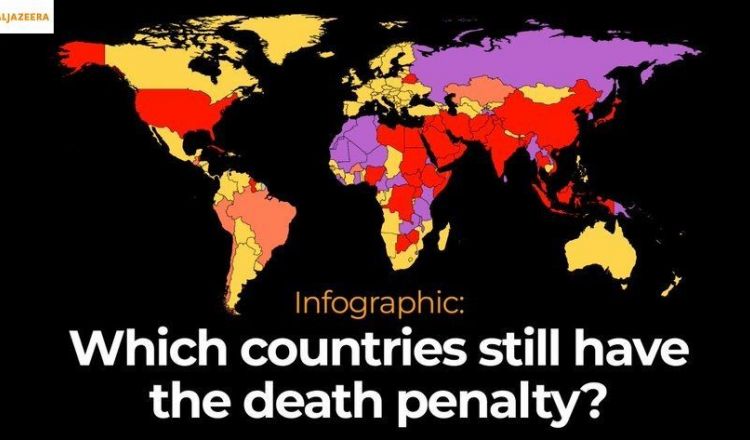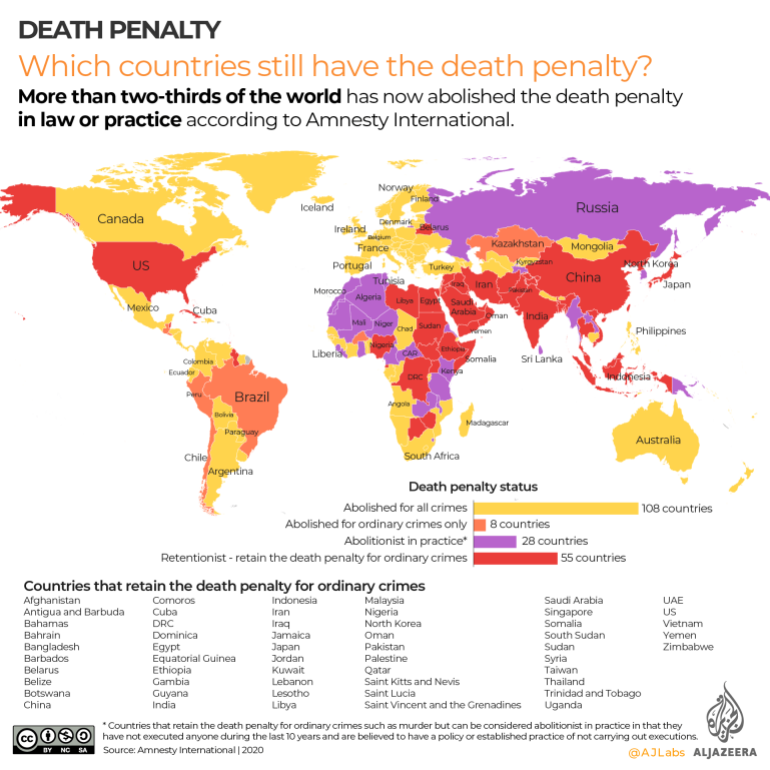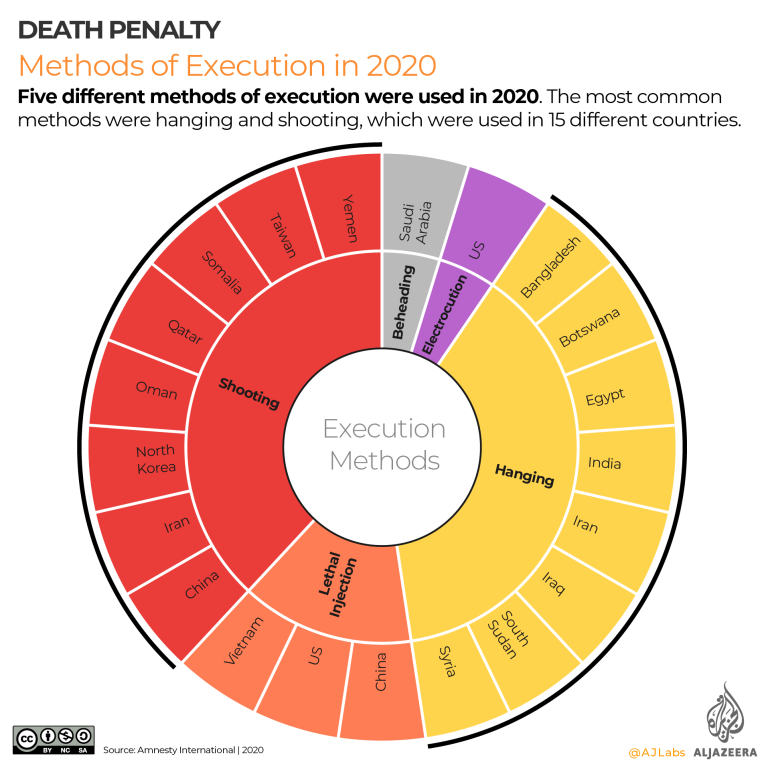More than two-thirds of the world has now abolished the death penalty in law or practice... Yet still: 16 women were among 483 executed in 2020
2021-10-19 10:12

Infographic: Which countries still have the death penalty?
by Mohammed Hussein-Al Jazeera
October 10 marks the World Day Against the Death Penalty. The theme this year is focused on safeguarding the health and rights of women and girls around the world.
According to Amnesty International’s 2020 death penalty report, more than two-thirds of the world has now abolished the death penalty in law or practice.
A total of 108 countries have completely abolished the death penalty for all crimes, 28 countries have effectively abolished the death penalty by not executing anyone over the past 10 years and 55 countries still retain the death penalty for ordinary crimes.

Executions and sentences in 2020
At least 483 people were known to have been executed in 2020, the lowest figure that Amnesty International has recorded over the past decade. Executions in 2020 fell by 26 percent compared with 2019, when 657 were registered; and by 70 percent from the peak of 1,634 executions reported by the international human rights group in 2015.
Four countries – Iran (at least 246), Egypt (at least 107), Iraq (at least 45) and Saudi Arabia (27) – accounted for 88 percent of all known executions in 2020.
The recorded global totals do not include the thousands of executions that Amnesty International believed were carried out in China, where data on the death penalty is classified as a state secret.
Amnesty International recorded that 16 women were among the 483 people known to have been executed in 2020. Cornell Center on the Death Penalty Worldwide estimates that at least 800 women have been sentenced to death around the world.

Methods of executions by country in 2020
Five different methods of execution were used in 2020. The most common methods were hanging and shooting, which were used in 15 different countries.
Lethal injection is the most widely used method of execution in the United States, but some states authorise other methods, including electrocution, gas chamber, hanging and firing squad. Beheading with a sword is the predominant form of execution in Saudi Arabia.










